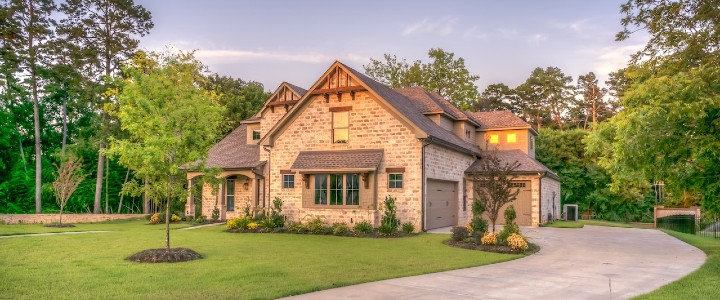What is ICF Construction?
Sustainability truly is an important topic that is on everyone’s mind right now. Why wouldn’t we want to maintain this amazing planet we call home for future generations and many years to come?
There are lots of ways in which we have seen people become more sustainable in recent years. This could be by eating less meat or opting for a bicycle on the morning commute, right through to using renewable energy or actively saving energy around the home.
Another way in which people have been looking to save energy is by incorporating sustainable construction methods, using much more eco-friendly materials into their self-build when designing their dream home, one of which being Insulated Concrete Formwork (ICF).

What is ICF?
ICF is an innovative building system that incorporates polystyrene blocks with a concrete core. The polystyrene blocks are cut to size and built as the walls of a structure then concrete is poured into the centre of them offering incredible insulation and structural stability. It has sometimes been coined as ‘adult LEGO’, to give a clearer idea.
First patented in 1967 by Werner Gregori, the idea actually came from a foam drinks cooler while he was on holiday a few years before. The idea was that if the drink could remain cold because of the cooler, then this sort of insulation could be incorporated into construction too, with the polystyrene ICF blocks acting as the foam cooler, metaphorically speaking. Homes are a little bit different to a drinks can, so that’s where concrete comes in, offering further insulation and structural integrity too.
Sustainability and ICF Construction
The use of ICF has long been hailed as a sustainable component used when building a home. There are three key reasons why:
Insulation and Airtightness
As previously mentioned, ICF offers incredible insulating properties, and this is thanks to the polystyrene and concrete elements. Due to this, a home will use much less energy to both heat and cool a home. In the cooler months, heat can be generated from household appliances, and even body heat. While, in the warmer months, ICF keeps the heat out of the home, ensuring a comfortable environment throughout.
While the insulation in ICF plays a key role in reducing the heating demand of a structure, it really cannot take all the credit. The reduction in thermal bridging is also extremely important. This is the reduction in points of a home where heat would typically escape, such as pipe and cable openings, or windows and doors. ICF homes are built to be near-free of thermal bridges where possible, massively reducing the requirement for heating.
Site Waste
When a home is built using ICF, the blocks used are cut to size for each part of the home, thus eliminating most site waste. ICF components are also made up of completely recyclable materials, so any waste you do have can be recycled post-build. Finally, if a home is designed from the get-go with a specific ICF supplier’s products in mind, then you could see near-zero on-site waste as a result.
Home Life Cycle and Structural Integrity
ICF homes are built to last, and that is a fact. When built with ICF, a home will have a lifespan of well over 100 years. Plus, in those many years, there will be minimal maintenance required for the house. With the walls of ICF, the concrete in the centre is completely protected by the polystyrene outer, and as such adds to the very resilient nature of the home itself. This also renders it impenetrable to things like damp, rotting, mould and pests. All the above ensure that fewer houses need to be built over time, and much less maintenance is required.

Other Benefits of ICF
Thermal Insulation
Alongside thermal insulation, ICF also lends itself to a significant reduction in the requirement for acoustic insulation. The thick walls ensure that noise levels are kept to a minimum between rooms. Ideal for homes to those with a certain music talent, for example.
Efficiency
The sheer ease and efficiency of the build when using ICF is unrivalled when compared to traditional building methods and materials. This is due to the ease of installation when using ICF. As a result, sites will often see a considerable reduction in the requirement for labour.
There has been a huge rise in the use of ICF with both commercial and residential building in recent years, which has brought a whole host of benefits of sustainability to the construction industry, and we are looking forward to seeing what the future holds for the sector.
This article was provided by Econekt, a Passivhaus and low-energy ICF building company. So good, even Mother Nature would approve.













